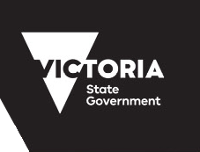Catchment Partnership Agreement
The purpose of the North East Catchment Partnership Agreement is to strengthen coordination, collaboration and accountability, reduce duplication, and provide clarity on roles and responsibilities between key catchment management partners with respect to implementing the North East Regional Catchment Strategy.
This purpose will help to achieve the following outcomes for the community and environment:
- Pursue healthier and more productive land, biodiversity and water assets, and ecosystems
- Facilitate adaptive management to address drivers of change
- Avoid duplication, but support appropriate redundancy, while enhancing regional coordination for greatest impact
- Seek value for money and maximise impact and outcomes from investment in natural resource management
- Give effect to Traditional Owner/First Nations Country plans and objectives
- Monitor catchment condition and the implementation of the Regional Catchment Strategy.
Membership is dynamic and recognises that those with an interest in implementing the North East Regional Catchment Strategy can change over time depending on a range of factors including resources, priorities at any given time and changes in legislation / regulation.
- North East Catchment Management Authority
- Department of Environment, Land, Water and Planning – Hume
- Alpine Shire Council
- East Gippsland Shire Council
- Goulburn Murray Rural Water Corporation
- Trust For Nature
- Rural City of Wangaratta
In fulfilling its purpose, the following objectives will drive the partnership forward:
- Identify regional priorities that need cross-organisational collaboration to be successfully implemented
- Account for legislative responsibilities, and describe and clarify policy implementation and regionally specific roles of the partners
- Coordinate and oversee the ongoing planning and delivery of priority initiatives as outlined in the Partnership’s annual work plan
- Ensure Traditional Owners/First Nations Peoples are equal partners in NRM planning and delivery by supporting and incorporating the outcomes of Whole of Country Plans, Cultural Landscape Strategies and other statements
- Provide accountability for the implementation of partner forum priorities to improve land, biodiversity, water and community management outcomes for the region
- Identify long-term, systemic and/or regional risks and develop options collectively for resolving them
- Review new relevant government policies to identify those that will require cross-organisational cooperation and collaboration for implementation.
The Catchment Partnerships participant’s role is to:
- Participate in an annual strategic planning day to identify NRM opportunities across the region for prioritisation to be included in an annual work plan
- Participate in quarterly check-ins with North East CMA to track the status of priority directions included in the annual work plan, as an indicator of catchment progress
- Oversee and support the development of initiatives as determined by each partners commitment
- Keep each other abreast of their organisations respective strategic directions and seek input on issues or decisions that have an impact on other partners
- Participate in Regional Catchment Strategy mid and end of term monitoring activities as outlined in the Regional Catchment Strategy Monitoring and Implementation Plan.
Integrated catchment management underpins the sustainable management of land, water and biodiversity resources. To achieve sustainability, mitigate climate change and ensure the long-term viability of natural resource systems, and human needs for both current and future generations, urgent and large-scale change is required. The North East Regional Catchment Strategy (RCS) is intended to be a shared blueprint for NRM across the region and relies heavily on a partnership model for its delivery. A significant number of the priority directions included in the RCS are exploratory (e.g. foundational or scoping activities), or ambitious, long-term changes that may only just be beginning during the life of this RCS. This underscores the importance of robust governance that will drive joint ownership, ongoing engagement and shared implementation by regional partners.
An Implementation Framework has been developed through the RCS Monitoring and Implementation Plan, setting out key events and processes throughout the life of the RCS. This is intended to provide clear oversight of RCS implementation (e.g. through tacking the status of Priority Directions and progress towards medium- and long-term outcomes), as well as facilitating strategic planning to drive action year-to-year.
Key processes are overseen through the North East NRM Partners Forum, they include:
- Recognise alignment – harnessing existing areas of strong alignment where partners were currently leading relevant programs and activities; recognising gaps; and identifying areas of interest in pursuing new initiatives linked to RCS priorities.
- Conduct annual strategic planning sessions – driven by the importance of the partnership delivery model and adaptive management principles, these provide an opportunity for regional partners to come together each year, to identify which RCS priorities can be progressed, and what that looks like in practice.
- Utilise good data – co-development of the monitoring and governance plans ensures RCS implementation is driven by timely information on design, delivery and impact. This includes quarterly check-ins with delivery partners to track progress, and more detailed mid- and end-of strategy reviews.
A clear framework for monitoring, evaluation, reporting and improvement, combined with robust systems and processes for governance are vital to ensure effective implementation of the RCS, to capture data on impact, adapt to changing conditions and drive continuous improvement.
These components are both particularly critical for the RCS, given its significance (as a strategic guiding document for natural resource management (NRM) in the region), its scale and complexity, and its partnership delivery model. Working together as companion documents, the RCS MERI and Implementation Plans are intended to:
- Enable performance monitoring – a robust MERI plan combined with good governance arrangements will provide oversight for RCS implementation, allowing performance to be monitored within appropriate timeframes. This is particularly important given the shared-ownership and partnership delivery model underpinning the RCS.
- Facilitate adaptive management – the strategy’s considerations of long timeframes (up to 2040) and inclusion of more exploratory ‘transformative’ priority pathways make adaptive management a key component of RCS implementation. This is critically important given the strategy’s focus on building resilience.
- Monitor changing catchment condition – this is needed to capture information on long-term trends for key catchment health indicators, and in relation to resilience thresholds set out in the RCS.
- Demonstrate impact – this is important to provide accountability and demonstrate the capacity of the RCS partners to plan strategically, target effort, coordinate actions and maximise value-for-money to government and other investors.
- Showcase success – this is needed to highlight the role of the RCS, its delivery partners and the local community in addressing local NRM issues and community priorities. This aspect of MERI is also important for knowledge-sharing and embedding best practice across projects and programs.
Reliable systems for oversight and a robust approach to adaptive management is important. The agreed governance structure to support effective implementation of the priorities identified by the Partnership is described below. Measuring the effectiveness of the Partnership from an operational and collaboration perspective will provide an indicator of the Partnership’s likely ability to successfully implement its stated priorities.

The North East NRM Partners aims to foster networks between agencies, NRM stakeholders, Traditional Owners/First Nations Peoples, industry and the community for holistic participation in the management of our natural environment. If you wish to contact the North East NRM Partners Forum, please email necma@necma.vic.gov.au.


